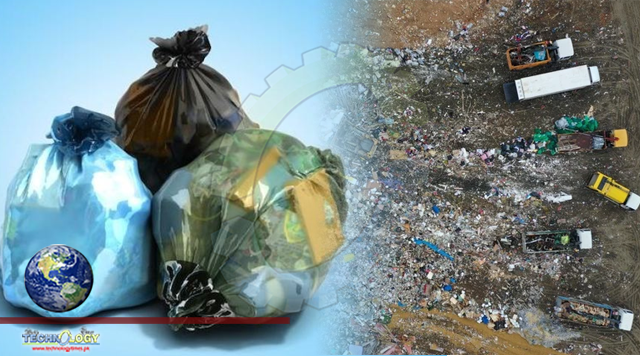Paul Zimmerman, chief executive of Designing Hong Kong, said one reason for the delay was that lawmakers anticipated a fallout from voters for backing a plan which would make them pay to have their garbage removal.

Now they see a glimmer of hope, as a long-delayed scheme to charge Hongkongers for every bag of trash removed is expected to become law soon.
But they warn that the city is still a long way from the goal of sending no trash to landfills by 2035.
“There are many factors affecting whether we can achieve the government’s 2035 goal,” said Edwin Lau Che-fung, founder and executive director of the local environmental group The Green Earth.
“While it is undeniable we cannot make it without charging for waste, we also cannot put all our eggs in this basket.”
He and others believe more can be done to encourage Hongkongers to produce less trash, push retailers to use less packaging, and recycle more.
First proposed nearly two decades ago, the waste-charging scheme will see residents paying HK$1.10 per 10-litre bag of trash removed. The average family is expected to pay about HK$33 to HK$51 per month.
The plan aims to cut the city’s waste by 40 per cent by 2022. The amount of waste sent to landfills daily has soared in the past decade, hitting a peak in 2018 when each resident dumped 1.53kg of rubbish per day.
This figure declined slightly to 1.47kg in 2019, but Lau said it could go up again as Hongkongers had been using more disposable cutlery during the Covid-19 pandemic.
The waste disposal bill was introduced in the Legislative Council in 2018, but its passage was stalled last year, with lawmakers on either side of the aisle accusing each other of holding up the process.
Lawmaker Frankie Yick Chi-ming, who chairs the bills committee studying the plan, said he hoped to move the bill to its next stage next month.
The Environmental Protection Department said the waste-charging scheme was a cornerstone for promoting waste reduction and hoped it would be passed as soon as possible. The department added that it would continue efforts to promote waste reduction and recycling in the meantime.
Paul Zimmerman, chief executive of Designing Hong Kong, said one reason for the delay was that lawmakers anticipated a fallout from voters for backing a plan which would make them pay to have their garbage removal.
In a survey by a local think tank, Civic Exchange, almost 70 per cent of more than 1,000 residents polled agreed the plan should be implemented, with two-thirds acknowledging the proposed fee was reasonable. However, of those who objected to waste charging, 34 per cent cited cost as a factor.
Helga Vanthournout, a solid waste expert and founder of sustainability firm Wealth of Flows Consulting, said it was time for the authorities to bite the bullet and proceed with the plan.
“But it has to be clearly communicated to people why this is better for the city and the environment and how it actually gives them more control over their expenditure on waste management,” she said.
She estimated Hong Kong would need about five years to adjust to waste charging, but urged the authorities to work with retailers to give consumers products with less packaging.
It must also become more convenient for people to recycle, for example by having smaller stations for sorting community-level waste. Otherwise, Vanthournout said, people will continue leaving rubbish on pavements for trash pickers to deal with.
“Waste management is not about morality, it’s about convenience,” she said. “You cannot just create a policy stick through waste charging and not give citizens alternatives.”
Vanthournout also emphasized that while incinerators would continue to have a role in Hong Kong’s waste management, they should not be a convenient way to hide any failure to reduce waste.
Agreeing, Lau hoped the government would not build another incinerator before implementing other measures.
Secretary for the Environment Wong Kam-sing confirmed earlier this year that his bureau was considering building a second incinerator in addition to one already being constructed in Shek Kwu Chau.
With the waste-charging system on the way, Vanthournout urged the authorities to help the city’s informal waste sector, comprising mainly of elderly trash collectors working for a basic wage, to ensure they would still have work.
She said they were currently operating on a “semi-formal” basis, with building management companies often giving them access to recyclables from residents and space to store waste.
Waste companies should pay them a decent salary, which would also encourage them to sort garbage for recycling properly, she added.
Meanwhile, Lau also called for action to reduce the use of plastic drink bottles.
A proposal will see drink sellers charged for the cost of recycling containers and consumers getting a cash refund for bringing back used bottles.
Lau urged the government to press on with a plan announced by Environment <inister Wong three years ago, to install a network of 500 water fountains for people to refill their water bottles.
To raise recycling rates and encourage a change of behavior, he said residents could be given small financial rewards for bringing their trash to community recycling centers.
“There is no single solution to the waste problem,” he said.
Originally published at The Korea times